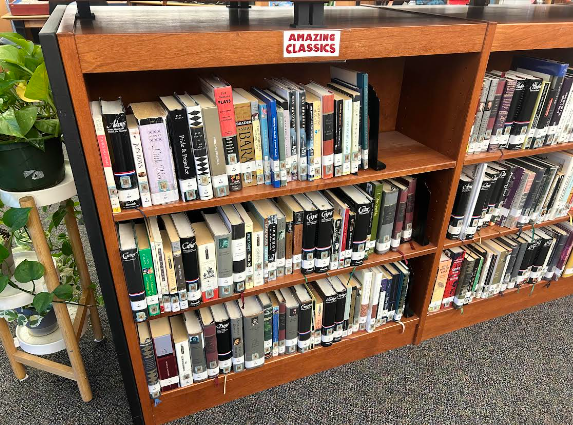You are sitting in your English class, so ready for the summer break and to finally get rest. All of a sudden, your English teacher hands you a summer reading assignment. You sigh and murmur under your breath, “What’s the point of doing this? Is this going to do anything but ruin my summer vacation?”
Despite the initial frustration many of us feel, summer reading assignments should be assigned and are a great way for students to ensure they are reading during the summer. Summer reading assesses students on their reading comprehension and writing skills allow students and teachers to have more time to read books inside the classroom. They enforce prior skills taught before and newer skills taught in the year the student is going into.
Do students read books during the summer anymore? According to studies, done by Scholastic’s biennial nationally representative survey, they have found out that more than 32 percent of students who are the age of 15-17 do not read books over the summer. Having such a large number of students not reading over the summer is alarming, especially at a growing rate. Students need to be assigned a reading assignment during the summer, to make sure they are building their vocabulary, writing skills, and to prevent students from the summer learning loss.
Summer reading assignments show English teachers the skills that their students need to work on and establishes a baseline of what they already know. Summer reading assignments are like an assessment over the summer. It makes the English teacher aware of the skills that a majority of the class knows and does not know. Teacher can make lesson plans based on the grades of these assignments.
English teacher, Ms. Felician says, “I think that it’s super useful because I feel like a lot of the time over the summer students kind of get out of touch with what’s happening in the classroom. And I think reading just in general is beneficial for all aspects of education. I think that it makes sure that we’re able to consume information more easily. It helps comprehension, it helps us become better writers. And I think that having some kind of assignment where students are accountable for continuing that lifelong process of learning, even when they’re not directly in the classroom is like really essential, especially if their plan is to go on to college and do different kinds of things, even if they plan to enter the workforce directly, they do need to have that foundation of education. And I think that the summer reading assignment, whatever that assignment looks like, helps reinforce those necessities.”
Summer reading can provide context to the English teacher and whether the students understand the book they were assigned and if the book is appropriate for their reading level. Overall, summer reading assignments are a great metric to assess their students on their knowledge which would help the students further strengthen their prowess and tie any missing knots.
Reading an assigned book helps quicken the curriculum and English teachers can have more time reading more books inside the classroom. Since there is not enough time given to every period, it is harder for teachers to finish their lessons while being on a tight time crunch. Students can be very unpredictable. Depending on how the students act and their motivation, will determine how fast the lesson will go. English teachers who have students who are not cooperative, that class is less likely to finish and read more books. To make a big dent in the curriculum, English teachers need to give a book for students to read over the summer so they can fit more books into the curriculum. Thus, for students to be able to read more diverse books, teachers would need to assign books to make sure they will have time to cover other important topics.
Sophomore Soleil Smith also agrees that summer reading is very beneficial, she says, “I feel like you don’t tend to read unless we are forced to.” Smith also says, “I feel like it helps you not lose any skills that you learned throughout the last year, like reading skills, and I feel like you can use them beneficially!”
Students are off from school for about two months in the summer. Most students are not doing activities that will prevent the summer slump. The summer slump is when students are not able to recall skills or information that they have learned in the classroom because of so much time off from school in the summer. Grammar and reading comprehension should only be further strengthened. The summer reading assignment is enriched with materials that will either be reviewed or new elements that the student will be exposed to. According to Yale Poorvu Center for Teaching and Learning, it says, “Research in educational psychology demonstrates that students’ prior knowledge can directly impact their learning in class. For example, learners who have more extensive K-12 academic preparation tend to have greater academic success in college.” To be successful in the classroom, students need to keep practicing and build on top of skills that they have learned, use those said skills, and connect them to new information.
Overall, the success of the student’s future depends on the already built skills that they already have and learning to use those prior skills to help navigate more complex concepts.
Summer reading should be assigned to prevent students from falling behind, show their future English teachers their capabilities, and add complex thinking to their minds. It’s a great way to help improve students’ reading comprehension and writing skills that they are already supposed to know. This would allow a smooth and easy transition to September when the true curriculum finally begins. This would allow more time for the teachers to add more books that the students are interested in. Students will greatly benefit from summer reading assignments since this will help pave their way to being a strong academic student.





